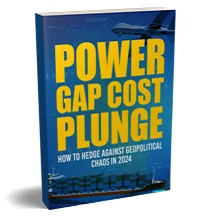
The economy isn’t climbing up. It’s slipping back. In fact, last week we received two new data points confirming the slippage. The first being Friday’s jobs report…
Net jobs growth in 2013 has averaged more than 200,000 a month thus far. But when the bean counters at the Labor Department tallied them up for July, they ran out of beans at just 162,000. What’s more, the new jobs to count aren’t the type of jobs that grow the economy. They are the types that flatten it.
“What you’re seeing now is the spreading of low wage growth,” said Dan Alpert, managing partner at Westwood Capital. “Really we have become a nation of hamburger flippers, Wal-Mart sales associates, barmaids, checkout people and other people working at very low wages.”
Here at the Economic Prism we don’t discount anybody for showing up to a hamburger stand or a Wal-Mart position each morning. Far too many healthy and capable people are riding the disability gravy train these days. Still, we find it extraordinarily unacceptable that these are the only positions out there to be had.
Struggling to Stand Still
The other data point was revealed on Wednesday. According to the Bureau of Economic Analysis, the U.S. economy, as measured by the GDP, grew in the second quarter at an anemic 1.7 percent. What gives?
Obviously, this isn’t the growth rate of a healthy vibrant economy. Certainly, it won’t grow the country out of its debt conundrum. Nor will it create an abundance of opportunities for those wanting to pull themselves up from the lower rungs of the social ladder.
When it comes down to it, there wasn’t a real economic recovery following the Great Recession. Now, four years later, the economy is struggling to stand still while the debts that will ultimately suffocate it are stacking up like prison wall bricks. The middle class is getting encircled.
Nonetheless, St. Louis Fed President James Bullard thinks the economy should improve very soon…
“I think we are poised for good growth,” said Bullard. “I think the corporate sector is actually in good shape and I do think there is a lot of potential in the U.S. economy.”
From our perspective, the only growth we see is in the stock market. The S&P 500’s above 1,700 and up nearly 20 percent so far this year. But don’t think this growth is a good thing…unless you consider metastasizing cancer cells a good thing.
Exercises in Futility
The economy is flat yet the stock market is booming. A technician would tell you a divergence is occurring. Naturally, at some point things must revert.
The economy could either catch up to the stock market. Or the stock market could fall back to earth. At this point, the stock market has gotten so far ahead of the economy we believe a correction must occur. Moreover, we believe it will occur by mid-fall…just in time for Halloween.
For now the stock market continues to be inflated by the aggressive $85 billion per month in Fed money pumping. Obviously, it hasn’t done a lick to improve the economy. But it is blowing gas into a massive stock market bubble. It’s causing a great distortion. It’s the impetus for the diversion between the economy and the stock market.
Last Wednesday Federal Reserve Chairman Ben Bernanke said he and his cohorts would continue huffing and puffing $85 billion of created money into the financial system until the economy improves. Unfortunately, if it hasn’t worked so far it never will. Continuing to further push on the string is a massive exercise in futility.
“Growth comes from businesses that invest in profitable projects financed by real savings,” explains Professor Michael S. Rozeff. “It comes from capital accumulation, and that requires saving in an expectation of earning a return. To the extent that central bank and government policies are manipulating interest rates and influencing asset prices, they are discouraging saving and increasing the uncertainty of future returns.
“There is certainly no way that government can stimulate economic growth if, as it is doing, it borrows from banks, the central bank and the public, thereby either inflating the money supply or diverting savings from business enterprises.”
Yet they’ll keep at it until their stubbornness is overcome by stupidity.
Sincerely,
MN Gordon
for Economic Prism





